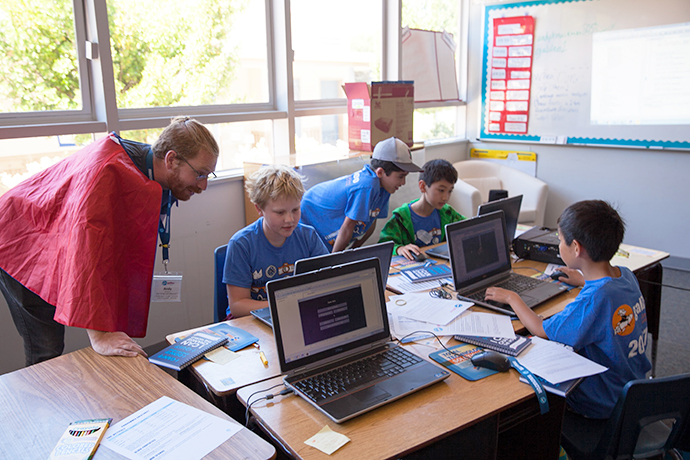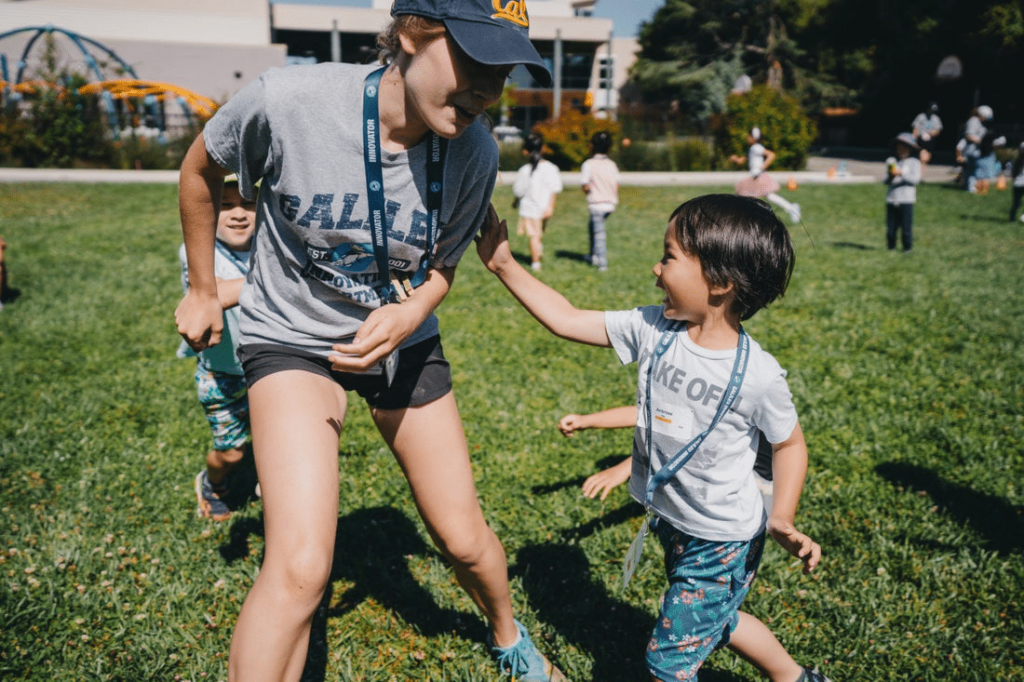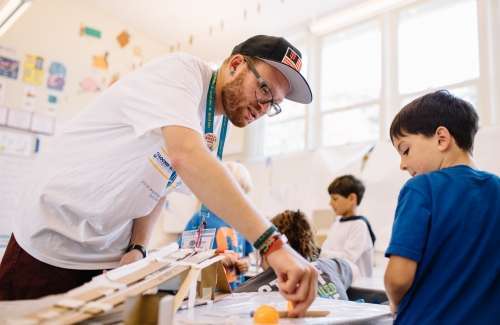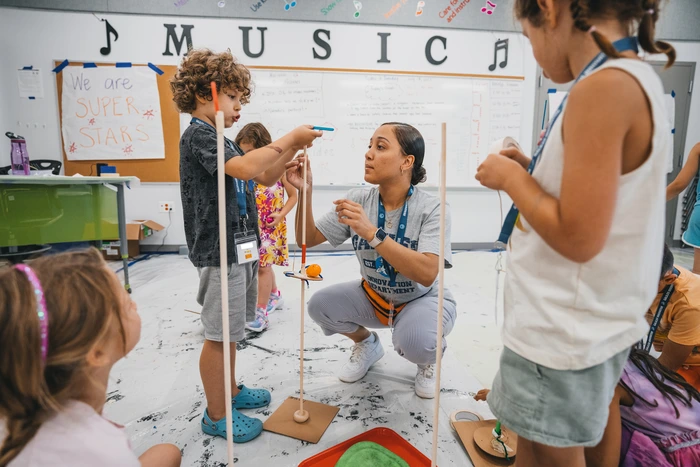As more and more school districts (in 43 states at the time of this writing!) are embracing computer science instruction and counting it as a graduation requirement, there has been some pushback from parents. Some skeptics wonder, “Are kids being asked to start coding too young?” and “Is the primary motivation behind early computer science instruction workforce development?” While enthusiasts tend to be curious about questions like, “At what age is it beneficial to start?” and “Where can my kids learn to code?”
Addressing all of these questions is important, but there’s no doubt: coding has a multitude of benefits and early exposure can be an amazing experience for kids. Aside from the computer science and coding experience kids get in school, a coding summer camp can be a novel and beneficial opportunity to get them started.
THE IMPORTANCE OF COMPUTER SCIENCE AND DIGITAL LITERACY
Computer programming is all around us, increasingly driving the conveniences and technology in our homes, schools, workplaces and communities. Most of us rely daily on devices that have been programmed, and an increasing number of jobs require programming capability. Some believe that access to computer science is an equity issue and that those who do not learn to code will be left out or left behind. As schools have re-evaluated their curricula for the 21st century, computer science and media literacy are increasingly considered as equally essential as basic literacy and numeracy. Many have invested in one-to-one initiatives where every student has access to a computer at school every day, and teachers are relying more and more on computer technology to help students learn and to demonstrate their learning.
Outside of the school curriculum, it is up to parents to determine the role that computers and digital media will play in their kids’ lives. The American Academy of Pediatrics has somewhat relaxed its screen time limits for young children. The AAP recommends no screen use other than video chatting for kids under 18 months while suggesting that parents share high-quality screen experiences with kids 18-24 months of age. Those 2-5 years old should be limited to one hour per day, while parents are advised to set reasonable and consistent usage limits for kids over six as part of a healthy, well-balanced daily schedule. The AAP has even created a Media Time Calculator to help parents set age-appropriate expectations for kids’ screen time.
WHERE DOES CODING COME IN?
Even without touching a computer, there are ways to prepare kids to understand how they work. Concepts like recognizing patterns, following multi-step directions and connecting cause and effect are important precursors to computer programming, and they can be learned in an “unplugged” environment. Kids can grasp computational thinking from a young age and through a variety of fun and engaging activities. It is important to consider that programming, like other STEAM disciplines, involves such skills as problem-solving, logical thinking and sequencing.
LEARNING THROUGH PLAY
When kids learn coding, it is best taught not in isolation but in the context of programming a game or directing a robot. A great place to start with little ones is with toys that teach pre-coding skills. Robot Turtle is a board game designed for kids 3-8 years of age. Players direct their turtle’s movement through steps via a sequence of cards that parallel the lines of code that would guide a robot turtle. Code & Go Robot Mouse is a maze-building game for kids five and up. With color-coded activity cards to guide construction of the maze, this is an ideal game for pre-readers. The Fisher-Price Code-a-Pillar is a caterpillar-like robot made of eight segments and a head. Kids aged 3-6 years guide the robot’s path by attaching the segments in a specific order; each different sequence guides the code-a-pillar through a series of movements or to reach a target. A wealth of programming toys are available to add complexity and skill for kids as they grow and build computational thinking. Scratch is a basic coding language to get kids started. It can be used to create games, stories and animations by stringing blocks of code in sequence. Recommended for ages 8-16, kids can access tutorials and project ideas online.
THE BENEFITS OF A CODING SUMMER CAMP EXPERIENCE
For parents who see value in coding instruction and want an even richer experience for their kids, summer camp is a place where campers can gain real tech skills in a fun, recreational setting. Galileo Summer Quest has several immersive majors where kids entering 5th-8th grades can spend a week learning to code in the context of a real-world project. For those who enjoy programmable toys, Robot Pet provides an opportunity to build their own moving robot that senses and responds to its environment. Digital game enthusiasts can select Mobile Game Design or Mod Design with Minecraft®. Both provide campers an opportunity to program their own games while working with the latest hardware and software. Virtual Reality gives kids the chance to tell their story in three dimensions, coding programs to create the 3-D action. Each session gives campers practice with design thinking while empowering them to share their ideas. By week’s end, they see themselves as capable innovators who can positively impact the world.

HOW YOUNG IS TOO YOUNG?
With many kids comfortable using a mouse or touchscreen before they can even hold a pencil, they are never too young to start learning about the devices that power our world. The emphasis on computational thinking should be age-appropriate and fun, with programmable toys and block programming acclimating kids to the way computers work and providing pre-coding experiences. As school districts continue to adjust their curricula to accommodate the evolution of digital technology, older elementary and middle school kids can benefit from coding summer camps where they learn to code in the context of a meaningful project. Whether they choose a career that requires coding or not, giving kids the skills necessary to understand how 21st-century technology works is a step worth taking.
Check out these opportunities for innovative coding summer camps in your area: San Francisco, Southern California, and Chicagoland. Sign up for our mailing list to keep up-to-date on our camp happenings, innovation resources and registration information for our upcoming 2019 camp season.





